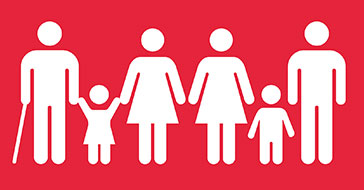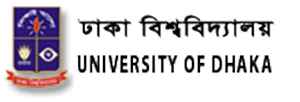Sustainable Development Goals

SDG 1: No Poverty
University of Dhaka's Initiatives Towards Achieving SDG 1: No Poverty
The University of Dhaka embodies its commitment to the Sustainable Development Goal (SDG) 1, which aims to “End poverty in all its forms everywhere.” This commitment reflects the university’s foundational values and incorporating diverse initiatives to combat poverty through education, financial support, and research.
Shaping Future Leaders
The University of Dhaka empowers students with knowledge and skills to combat poverty through inclusive education and entrepreneurship programs.
- Affordable Education:
- The university provides education at minimal costs, ensuring accessibility for students from low-income households.
- Faculties offer merit-based scholarships, allowing economically disadvantaged students to pursue higher education.
- Entrepreneurship Promotion:
- Outreach programs like the collaboration with the University of West Florida integrate engineering education and entrepreneurial skills, enabling students to uplift their communities.
- Outreach programs like the collaboration with the University of West Florida integrate engineering education and entrepreneurial skills, enabling students to uplift their communities.
- Curriculum Development:
- Courses and seminars address poverty-related challenges, equipping students with knowledge and skills to develop sustainable solutions.
Innovative Solutions for Tomorrow
The University of Dhaka advances knowledge on poverty alleviation through multidisciplinary research initiatives and global collaborations.
- Poverty-Focused Studies:
- The Bureau of Economic Research conducts studies on poverty drivers and mitigation strategies, contributing to evidence-based policymaking.
- The Bureau of Economic Research conducts studies on poverty drivers and mitigation strategies, contributing to evidence-based policymaking.
- International Collaboration:
- Partnerships with institutions like the University of West Florida have facilitated programs promoting rural development and entrepreneurship.
- Partnerships with institutions like the University of West Florida have facilitated programs promoting rural development and entrepreneurship.
- Multidisciplinary Research:
- Projects like the Zoology Department’s conference on “Poverty, Health, and Bioresources” examine the intersection of biodiversity and sustainable development to alleviate poverty.
- Projects like the Zoology Department’s conference on “Poverty, Health, and Bioresources” examine the intersection of biodiversity and sustainable development to alleviate poverty.
- Research Publications:
- Findings on poverty-related issues are published in reputable journals, contributing to the global knowledge base on SDG 1.
Sustainable Campus and Practices
Effective management of resources ensures financial support reaches the most disadvantaged students.
- Scholarship and Stipend Programs:
- Residential Hall Stipends: Monthly allowances support 341 students from the lowest 20% income bracket.
- Tokyo Mitsubishi UFJ Foundation Scholarship: Benefited 30 students with 37,500 BDT grants each for academic excellence.
- Sumitomo Corporation Scholarship: Provided need-based aid to 40 students in 2023.
- Departmental Welfare Funds:
- Many departments maintain welfare and alumni funds, such as the Khaja Nazim Uddin Scholarship, to assist financially disadvantaged students.
- Many departments maintain welfare and alumni funds, such as the Khaja Nazim Uddin Scholarship, to assist financially disadvantaged students.
- Corporate Partnerships:
- Collaborations with Community Bank and Lanka Bangla Securities Ltd. enabled substantial scholarships, supporting 102 students collectively.
- Bank of Tokyo Mitsubishi UFJ Foundation Scholarship: 30 students received 37,500 BDT each in a single installment for academic excellence.
- Inclusivity:
- Policies ensuring equal representation (e.g., 50% male and 50% female scholarship distribution) highlight the university’s inclusive and sustainable governance.
Empowering Communities for Change
The university actively engages with communities to drive poverty reduction through outreach and partnerships.
- Engineering Outreach Program:
- A 600,000 BDT initiative promotes engineering education and entrepreneurship in rural Bangladesh.
- A 600,000 BDT initiative promotes engineering education and entrepreneurship in rural Bangladesh.
- Health and Poverty Linkages:
- The Zoology Conference highlighted innovative approaches to address poverty through health and sustainable resource management, connecting local and global stakeholders.
- The Zoology Conference highlighted innovative approaches to address poverty through health and sustainable resource management, connecting local and global stakeholders.
- Rural Empowerment Initiatives:
- Collaborative research and programs directly impact rural communities, fostering self-sufficiency and economic growth.
Global Partnerships and Impact
- Financial safety nets and scholarships reflect a commitment to lifting disadvantaged students, fostering their potential to contribute to society.
- Innovative research that informs poverty reduction strategies.
- Collaboration with national and international organizations amplifies outreach and addresses poverty from multiple dimensions.
- Resource management that empowers students through scholarships and financial aid.
- Community-focused initiatives to address poverty at its roots.
These initiatives not only empower students but also contribute to broader socio-economic development in line with SDG 1.

